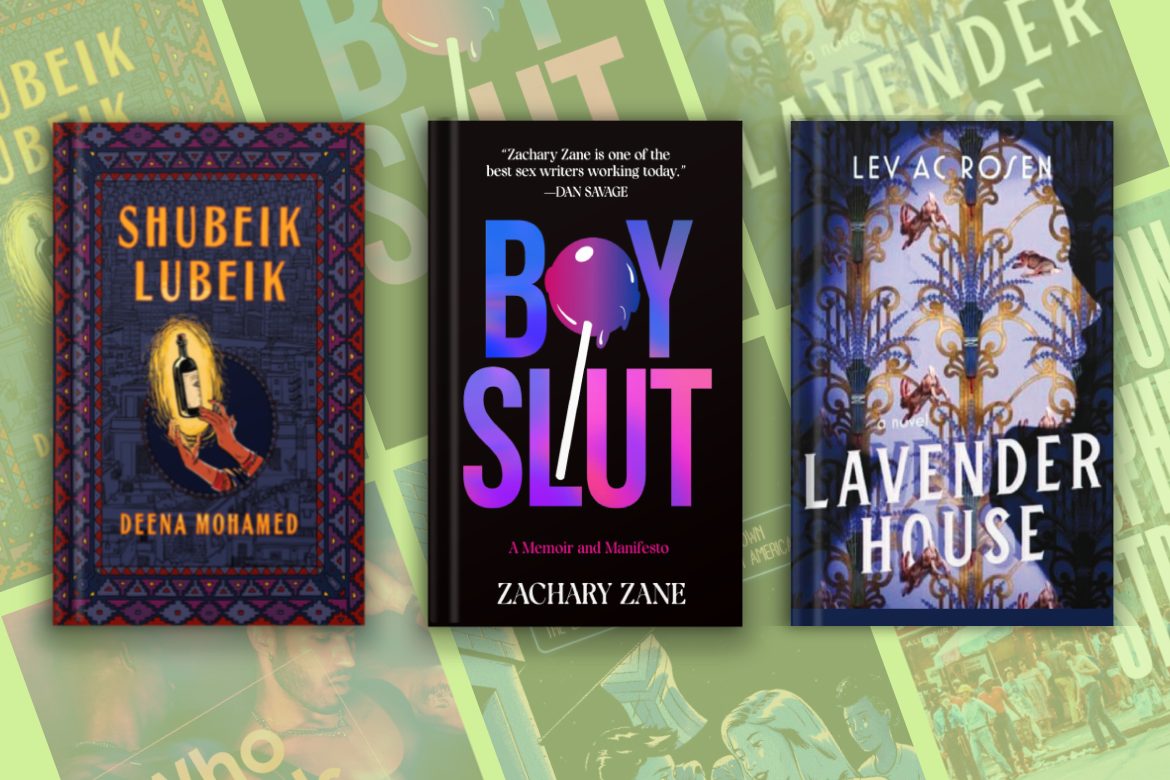In our June Book List you’ll love reading about gay life in Michael Denneny’s On Christopher Street: Life, Sex and Death after Stonewalls, enjoy a fascinating encounter with the culture of Cairo in Deena Mohamed’s Shubeik Lubeik and Lev AC Rosen’s old-fashioned murder mystery with a new-fangled queer twist, Lavender House.
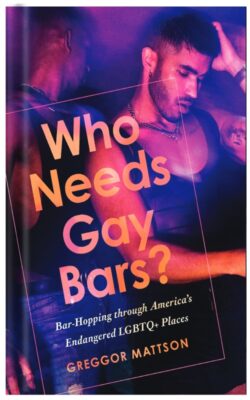
Who needs gay bars by Greggor Mattson
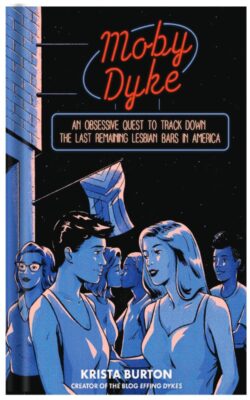
Moby Dyke by Krista Burton
Pride Month happily coincides with the start of summer reading and summer road trips. All three can be celebrated with two new chronicles of coast-to-coast bar crawls: Krista Burton’s Moby Dyke: An Obsessive Quest to Track Down the Last Remaining Lesbian Bars in America (Simon & Schuster. $28.99. simonandschuster.com/), and Greggor Mattson’s Who Needs Gay Bars? Barhopping Through America’s Endangered LGBTQ+ Places (Stanford University Press. $30. greggorrmattson.com). Burton, a freelance writer and blogger, writes in an upbeat, engaging voice that makes you feel like you’re chatting with her over beers; Mattson, Chair of Sociology at Oberlin College is a more of dry martini stylistically, but plenty accessible nonetheless. While their titles hint of crises, both books are at their best when the authors describe being happily ensconced in queer watering holes and caught up in friendly conversation with locals rather than more abstractly addressing topics like the impact of dating apps on the queer bar scene, or whether straight people should be welcomed as customers. That said, the books make it clear that bars for LGBTQ+ people remain very much needed in more rural and conservative areas of the country, where they sometimes serve as centers for queer community building. Both authors’ meanderings lead them to Alibi’s, a lesbian-owned (but all-are-welcome) watering hole in Oklahoma City, and Mattson makes his way to Basix in Cedar Rapids, Iowa and Club Xclusive in Hattiesburg, Mississippi. Burton’s touching personal stories about topics including her trans-man husband and the time she took her devout Mormon mother to a gay bar make Moby Dyke a tad more suited to leisure reading, but both books offer plenty of worthy food, and drink!, for thought. They’re perhaps the best queer American travelogues since Edmund White’s States of Desire was published way back in 1980.
BUY BOOK When you purchase a book from our curated Bookshop.org shop we earn an affiliate commission. The books are independently reviewed by our book editor and the potential commission does not influence the review in any way.
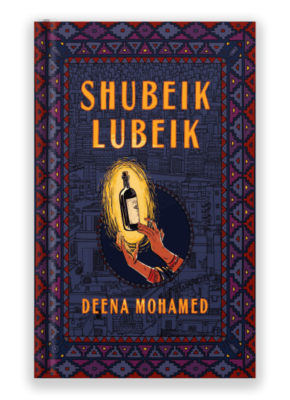
Shubeik Lubeik by Deena Mohamed
While Egypt may not be a wishlist destination for many LGBTQ+ vacationers these days due to its intolerance of homosexuality, armchair travelers can enjoy a fascinating encounter with the culture of Cairo through Deena Mohamed’s enthralling graphic novel Shubeik Lubeik (Pantheon. $35. deenadraws.art). This engrossing tome deftly weaves stories of class, gender, and religious faith into a narrative that combines contemporary urban life with folkloric fairytale traditions. In Mohamed’s alternative Egypt, wishes aren’t granted by genies but sold at streetside kiosks, alongside cold drinks and newspapers; they’re then required to be submitted to and approved by a maddeningly bureaucratic Wish Registration Bureau. One of the featured wish-purchasers is Nour, a privileged non-binary university student hobbled by mental illness (the isolation and disarray of depression is movingly captured in Mohamed’s floating overhead views of Nour, adrift in his bed, floor covered in discarded clothing and other detritus). Along with more typical comic book panels, Mohamed incorporates clever Infographic elements, including a Venn diagram of motivations and a complex flow chart of options to pursue from a starting point of “FEEL BAD.” Through its own richness and complexity, Shubeik Lubeik will make readers feel good..
BUY BOOK When you purchase a book from our curated Bookshop.org shop we earn an affiliate commission. The books are independently reviewed by our book editor and the potential commission does not influence the review in any way.
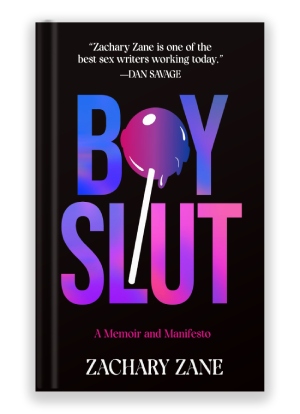
Boy Slut by Zachary Zane
We live in speedy times. At just 32 years old, Zachary Zane is piqued by Gen Z’ers who pointedly describe themselves as pansexual after he tells them that he’s bi: “I really get the vibe that pansexuals feel like they’re out-woke-ing and one-upping bisexuals.” If Zane, author of Boyslut: A Memoir and a Manifesto (Abrams. $26. zacharyzane.com) feels defensive and old-fashioned (“I don’t want to feel like my identity is somehow outdated, ignorant or non-progressive”), maybe those of us north of 40 should resign ourselves to exile in fuddyduddydom. On the other hand, we can follow Zane’s lead in largely blowing off the never-ending nomenclature wars to focus on mutual- and self-respect in regard to sexuality and identity. Cocky, comic, and clearly heartfelt, Boyslut offers a vision of non-toxic modern masculinity that allows for all the quirks, kinks, and fetishes one’s dirty mind desires. Zane, whose writing has appeared in publications ranging from Men’s Health to OUT to The Washington Post, shamelessly details his own sexual adventures (“I’ve dommed, subbed, switched, fisted, DP-ed, spit-roasted, tied up, and cuckolded”) both to entertain readers and to help them shake off their stigmas.
BUY BOOK When you purchase a book from our curated Bookshop.org shop we earn an affiliate commission. The books are independently reviewed by our book editor and the potential commission does not influence the review in any way.
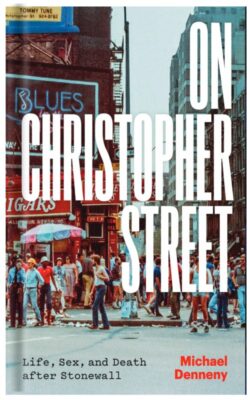
On Christopher Street by Lev AC Rosen
If you love reading about gay life, you owe a debt to Michael Denneny. In the late 1970s and early 1980s, Denneny cofounded Christopher Street, history’s most influential gay literary magazine. He edited, published, and helped readers discover authors including Andrew Holleran, Larry Kramer, Paul Monette, and Randy Shilts; and was the first openly gay editor at a major publishing house (St. Martins’ Press, where he oversaw the Stonewall Editions paperback line). Denneny, who now works as an independent editor and consultant in New York, looks back at the three final decades of the 20th Century in On Christopher Street: Life, Sex and Death after Stonewall (University of Chicago Press. $22.50. independenteditorsgroup.com/michael-denneny). His retrospective collection of interviews, essays, and other writings is particularly valuable for its reflections on gay life between the twin tumults of the Stonewall riots, in 1969, and the AIDS crisis, beginning in the early 1980s: It’s an era that, while largely overshadowed by its momentous historical bookends, is also the very period in which “gay books” first won respect as a literary niche.
BUY BOOK When you purchase a book from our curated Bookshop.org shop we earn an affiliate commission. The books are independently reviewed by our book editor and the potential commission does not influence the review in any way.
AIRPLANE READ OF THE MONTH
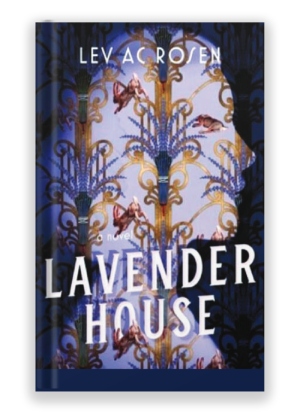
Lavender House by Lev AC Rosen
I’m giving Lev AC Rosen a literary drag name: Agatha Queerstie. His terrific recent novel, Lavender House (Forge. $26.99. levacrosen.com) is an old-fashioned murder mystery with a new-fangled queer twist. It’s the first in a planned series following the exploits of ex-cop and private sleuth Evander “Andy” Mills (A second, The Bell in the Fog, is on its way in October). Set in San Francisco in 1952, the debut installment provides an origin story for Andy’s work as a private investigator. Kicked off the police force after being busted having sex in a gay bar men’s room during a raid, he is quickly hired by Pearl, who suspects that her partner, the soap magnate Irene LaMontaine, has been murdered. Andy quickly finds himself entangled (literally, as well as figuratively) with the eccentric residents and servants at the book’s titular Marin County mansion, who are Pearl and Irene’s extended family of choice, almost all gay men and lesbians, sharing secret lives in a secluded pseudo-utopia. The contrast between the personal freedom Andy discovers in the soap bubble of Lavender House and the noir-dark homophobia of mid-century San Francisco makes him loathe to incriminate anyone in his newfound community. Yet every one of them is a suspect. Word to the wise: Don’t drop this soap.
BUY BOOK When you purchase a book from our curated Bookshop.org shop we earn an affiliate commission. The books are independently reviewed by our book editor and the potential commission does not influence the review in any way.


